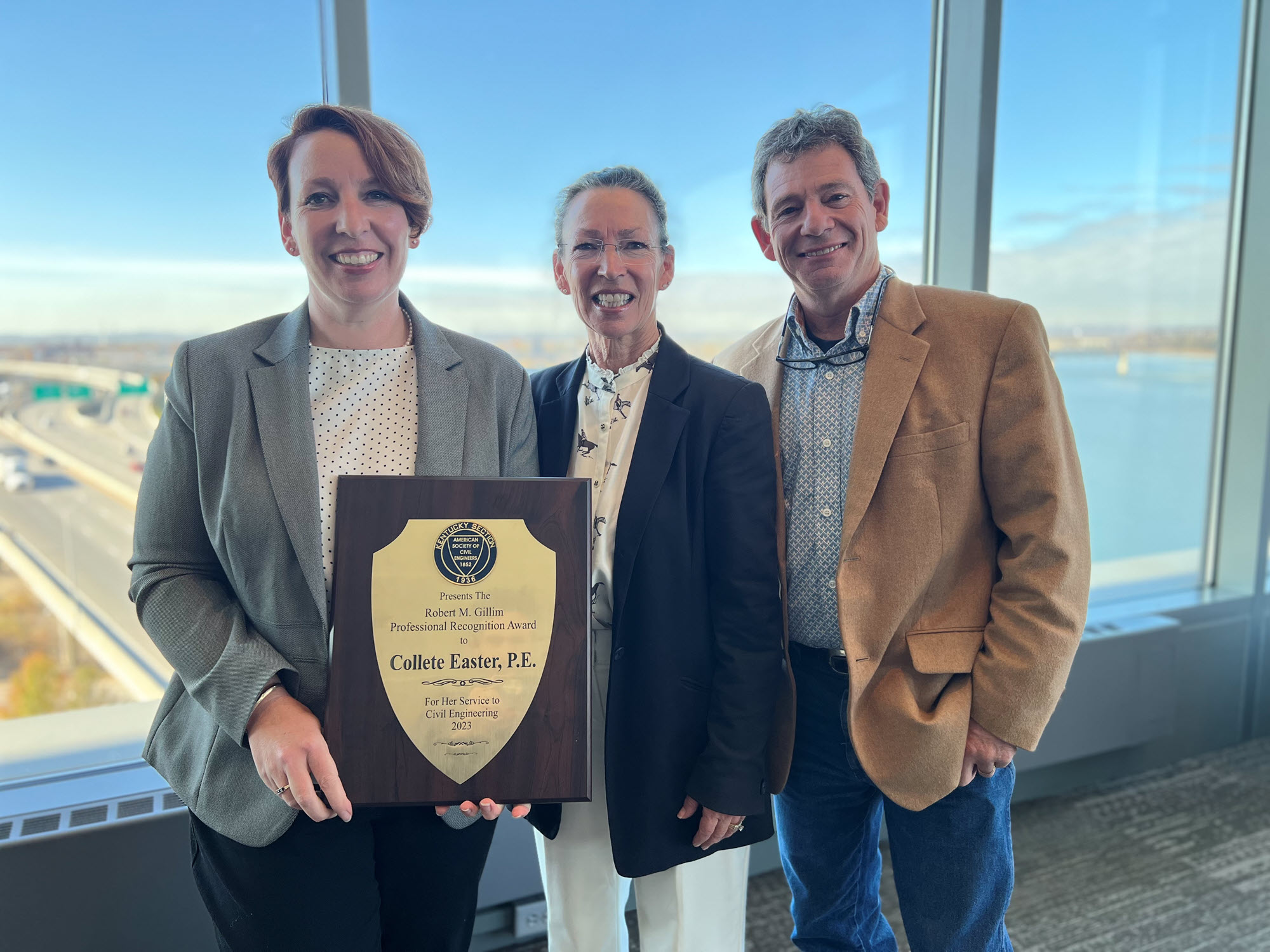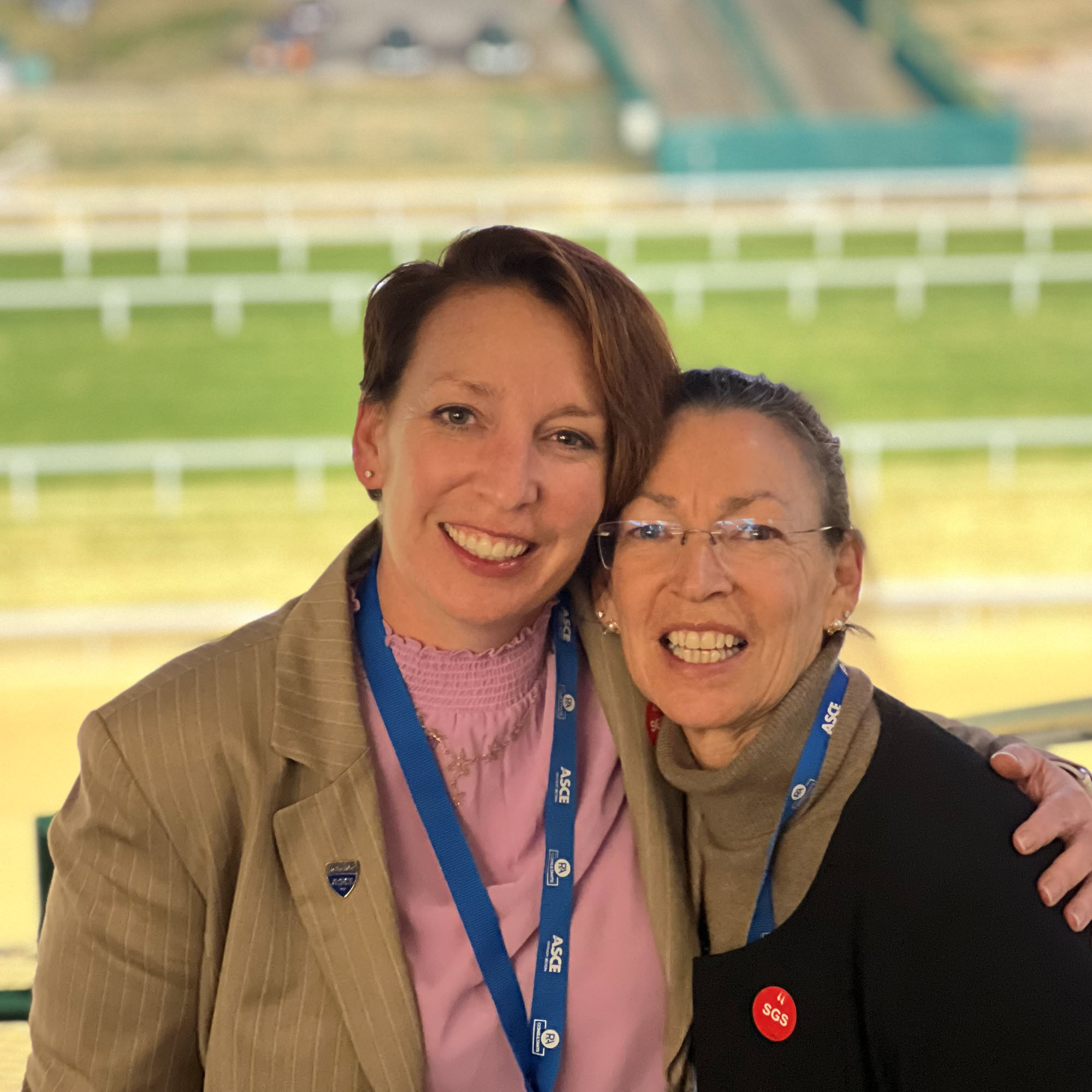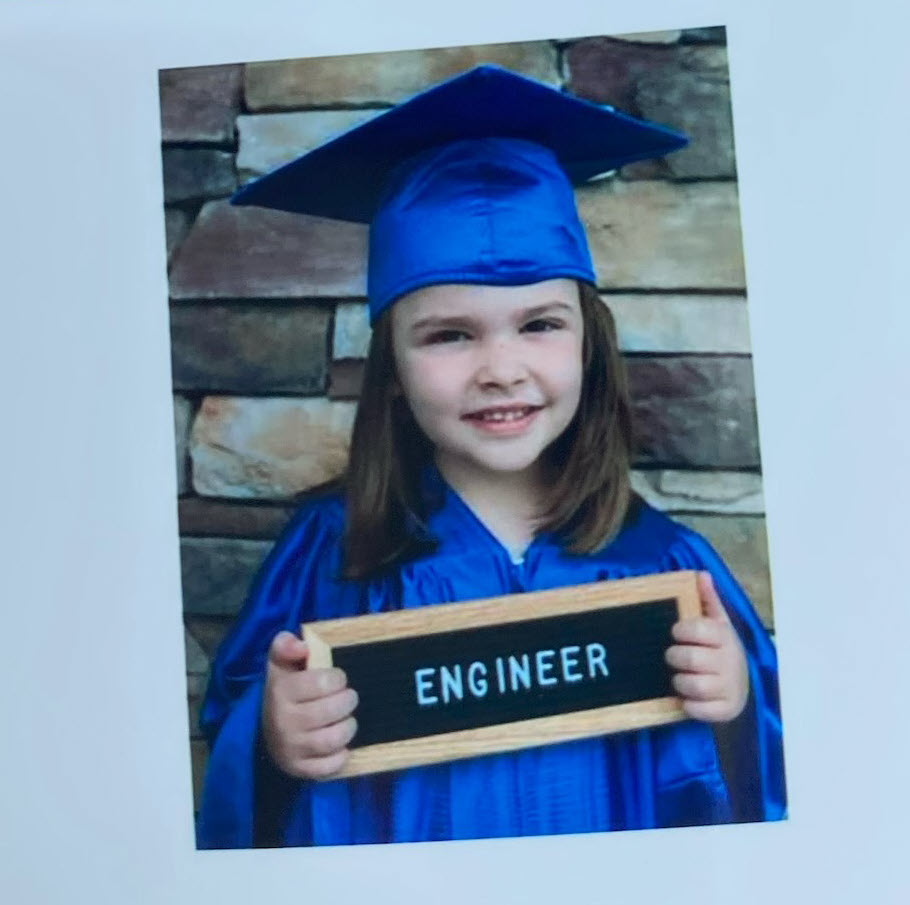
Colette Easter’s path to civil engineering started differently than most.
Going into college, she aspired to be a veterinarian. But certain aspects of the degree – particularly advanced organic chemistry – didn’t click.
“I had a conversation in my car with my mom about the fact that I could do the lab – that was fine – but the lecture was very difficult for me,” said Easter. “You would take this compound and this compound and you get this one. I asked them how that happens, and they said, ‘We don’t know, it just happens.”
This kind of logic felt more like magic than science to Easter. And for a self-described linear thinker, that made organic chemistry tough.
When her mother, Shane McKenzie – a civil engineer and longtime ASCE member – heard about Easter’s experience, she suggested engineering. And biological systems engineering offered a pre-veterinary track.
As Easter progressed through college, she realized that engineering resonated much more with her linear style of thought.
“By the time I finished my junior year, I had switched to an in-depth study of hydrology and hydraulics, and I actually finished my engineering degree with a focus in water resources,” Easter said.
McKenzie, P.E., M.ASCE, connected and automated vehicle technology lead for the Kentucky Transportation Cabinet, said she was “bursting at the seams with excitement to suggest civil engineering” when the opportunity arose, not just because of her love of the field but because Easter would be able to keep her education on track.
Easter, P.E., M.ASCE, who now works as an MS4 program manager at Louisville MSD, looks back on that conversation as a pivotal moment in her journey to civil engineering.
“I didn’t think I would follow my mom into the engineering profession,” she said. “It was just one of those conversations, and she just knows me. So, it definitely opened up doors and led me down the path that I’m in today, and I wouldn’t change it for anything.”
A supportive connection
That conversation – and her mother’s continued support – has taken Easter far in her career. In addition to her role at Louisville MSD, she now serves as ASCE Kentucky Region 4 governor.
“What’s funny is in college, I was not a civil student, so I didn’t get into ASCE,” Easter said. “I didn’t do concrete canoe, I didn’t do steel bridges [contests], but my mom was involved in that, and I vividly remember one of her structure classes with a balsa wood structure where they picked up a weight, swung it around, and set it down. I loved that.”
McKenzie’s interest in civil engineering began at a young age. Raised on a farm, she learned to understand “the power of water over a spillway or erosion after a good gully washer.”
Her family owned a construction business, and she was exposed to that type of work at a young age.
“I grew up watching things be built and equipment be worked on,” McKenzie said. “I sat by my dad’s side on the dozer while he cleared brush, cut in drainage paths and roads. I also handed my brother tools while he worked on an old junkyard jalopy or other engine things that were always torn apart in the garage.”
She didn’t end up working for the family construction business, but she realized she could “use my brain instead of my hands” as a civil engineer.
“It turns out I had a knack and love for math,” McKenzie said.

Although Easter’s pursuit of civil engineering started later, she followed her mother’s footsteps toward ASCE membership early in her career while working for a company that was heavily involved in the Society.
Easter’s first major ASCE role was as a Kentucky Section board member. When she had to leave the role for a move, she encouraged McKenzie to pursue the same position. And McKenzie did so successfully.
“We have bounced back and forth and been a part of ASCE together probably for the last 15 years or so,” Easter said.
As civil engineers, Easter and McKenzie have “fairly equally” influenced each other’s careers, the former said.
“It’s interesting to think about, but I’ve definitely been a part of identifying opportunities for her and encouraging her to step outside her comfort zone and try those,” Easter said. “And she's had some really cool career paths that way.”
McKenzie said her daughter is “a natural born leader” who she has learned a lot from.
Easter has helped McKenzie go after and work together on numerous ASCE goals, including becoming an officer, section conference planning and organization, strategic planning, the section's pandemic response, and helping with updates to the Kentucky Section's state infrastructure report card in 2019 and 2026.
McKenzie has been “100% supportive” of Easter as well.
“As far as influence or impact, it’s been a constant ‘I can achieve anything’ mentality,” said Easter.
Despite having similar careers, Easter believes that she and McKenzie have had to navigate the civil engineering industry differently, particularly with gender-based challenges.
“I really give my mom and her generation in general a lot of credit in the engineering profession for really breaking some glass ceilings and paving the path for women engineers who are taking the lead more,” said Easter.
Civil engineering runs in the family
Their shared career has given Easter and McKenzie plenty to bond over.
“My poor family has to deal with my mom and me talking about civil engineering-type projects,” Easter said. “We see something on the side of the road, we want to stop and look at it, and we get in depth in the conversations about a project.”

They have even started shared projects on their family farm using their civil engineering skills.
“I think what has the biggest influence is that we’re able to bounce off of each other and leverage one another’s expertise because we have very different, detailed subject matter expertise, but our principles are pretty similar,” Easter said.
McKenzie feels the same way.
“Bouncing off her or brainstorming on projects or initiatives is always exhilarating and fun,” McKenzie said. “She is so easy to work with. She has taught me the value of collaboration, patience, perseverance, and, perhaps most importantly, not to sweat the small stuff.”
Easter noted that it is common to see fathers and sons and even fathers and daughters in the civil engineering profession. But she hasn’t seen many mothers and daughters.
“The part I’m really excited about is that my niece is 7 and has identified that she wants to be an engineer,” she said. “I feel like we’re creating this legacy, and that’s pretty exciting.”
Learn more about how you can celebrate ASCE Day, Nov. 5 – ASCE’s 173rd birthday.



